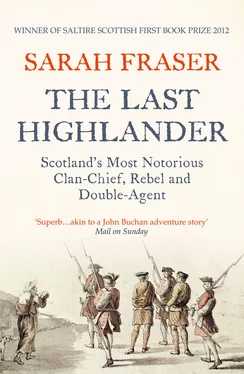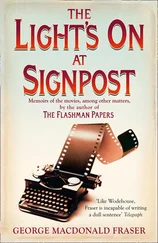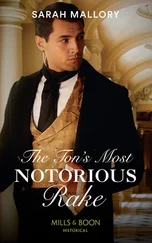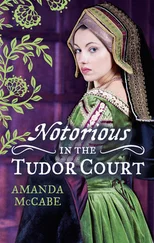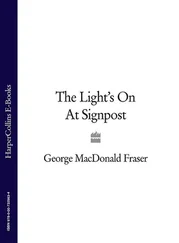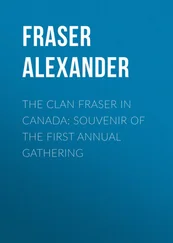1 ...8 9 10 12 13 14 ...24 Queen Mary’s death exposed the tenuousness of William III’s right to rule. Many in Scotland felt their suffering was the legacy of removing God’s anointed King, James II. A failed harvest in 1695 compounded their discontent. William needed strong support in Scotland: it was imperative that Murray raise the thirteen companies needed to fill his regiment, each under a captain. Every captain received a salary. Out of this he provided the men, paid his company’s expenses and kept the balance for himself. Murray offered one to Hugh Lovat. It would bring this Jacobite clan to heel, turn it Williamite, and display to his royal master Murray’s growing influence in the Highlands.
Hugh was not interested. It would mean leaving his wife and family, mustering in Edinburgh and becoming politically active in a way he had never desired. Murray had pressured Hugh to take the oath abjuring the Stuarts in favour of William. Now Murray wanted his brother-in-law to take a captaincy, and provide 300 Frasers for Murray’s regiment. Murray insisted. Lovat caved in, and then failed to fill the company. He had never led his men.
Simon Fraser unleashed ‘the bitterest invectives’, criticising his chiefly cousin for accepting the ‘infamous commission’. Alexander had died resisting King William; now Lord Lovat was asking them to sign up to join his killers. Behind the scenes, Simon worked to discourage Frasermen from enlisting. Above all, Simon wanted the captaincy for himself. He approached Murray’s recruiting agent, Dollery, and offered to fill the Fraser Company of Murray’s Regiment of Foot in return for Hugh Lovat’s captaincy commission. Dollery wrote to Murray recommending Simon: ‘I think him a very hopeful young man … and may be very serviceable to your Lordship.’ Simon had told him that with anything less than a captaincy he could not ‘do anything to distinguish him from the rest, which I find he very much aspires after’. Dollery picked up on the ambition, but not the scale of it; and he missed the potential irony of his observation. Murray did not.
Simon duly filled the 300 places his clan chief had failed to achieve. Pleased with himself, Simon asked for his captaincy and his money, a pound per soldier. Murray refused: he recognised that Simon was attempting to use clan operational norms – where clansmen served their leading kinsman’s cause, not a distant representative of the Crown – and subvert British regimental ones. Murray allowed Simon into his fold, but at the lowest possible level – as a lieutenant, where he believed he could not cause any trouble. Simon found himself outmanoeuvred. He ‘did not fail to be extremely disgusted’, he wrote, ‘having suffered himself to be over-reached by Lord Murray, whose treason he conceived to be of a very infamous nature’. By the end of December 1695, Lieutenant Simon Fraser was in command of Lovat’s Company of accoutred, martial-souled, Jacobite Highlanders. Some days they formed the Palace Guard at Holyroodhouse; others they marched to the other end of the High Street to form part of the force to defend the Williamite regime in Edinburgh. On their uniforms they wore the Murray badge (a mermaid with comb and mirror, and the words, Tout Pret, ‘Quite Ready’); and they carried the Murray colours. Simon’s saddle blanket and holster cap were embroidered with the cipher ‘WR’. It was as if the Frasers had been printed all over with the stamp of the enemy’s seal. Where was the Fraser badge of stag’s head and motto Je suis prest, ‘I Am Ready’; the Fraser of Lovat coat of arms – crowns and strawberry leaves – the last indicating the French origin of the clan.
William III desperately needed his Scottish soldiers: the British Army was chronically overstretched because of the King’s European campaigns, particularly his obsession with countering French aggression on the Dutch borders. High war taxes, the poor harvests and the continued heavy-handed quartering of troops was crippling the Scottish economy.William needed stability in his territories in North Britain. The King’s Private Secretary, Johnston, requested Murray come to London, and to come with panache. ‘If you have company at hand to come with you, My Lord Lovat, or Glengarry, it will look well, but no time is to be lost,’ Johnston counselled. That was Hugh Lovat’s purpose in life, Simon thought to himself – to gild another man’s lily and make a usurper feel secure. But Lovat would not leave his fireside in the middle of a hellish Highland winter. So Murray travelled south alone.
When Murray arrived he found he was to be well rewarded. On 13 January 1696, the King appointed him Secretary of State for Scotland. ‘He told me I owed it only to himself, which indeed is passed doubting,’ Murray purred with pleasure to his wife.
In Edinburgh, Murray’s officers fell over each other to congratulate their colonel. Simon led the cheers. ‘All your Lordship’s friends here are overjoyed for your Lordship’s new preferment,’ he gushed. ‘God grant your Lordship health to enjoy it!’ And ended his huzzahs with a request: ‘I hope your Lordship will not forget my captain’s act. It will certainly do me good until your Lordship is pleased to bestow better on me.’ He had his eye on the colonelcy.
Another officer simply asked Murray for the whole regiment straight out. The Secretary of State would not be expected to keep it in his own hands. Even without the personal motivation of the clan, it was not surprising Simon pushed so hard. In the lower reaches of the establishment, men like Simon saw too clearly the kind of oblivion that lay just below them. Except for a tiny minority of aristocrats, everyone was on the make. Simon, born to a little portion of privilege, knew there was a path down the social ladder that offered no one, except maybe his chief, a foothold. The weak went down; the strong rose.
Poor and failing harvests dominated the rest of the decade in Scotland. ‘The living wearied of burying the dead,’ and the population was forced to fight for scraps. These were ‘King William’s ill years’. The term showed who the Scottish people thought had brought God’s anger on them. In London and Edinburgh, Jacobite presses poured forth propaganda: ‘I hear the angel guardian of our island whispering in our sovereign’s ear … Rise and take the child and his mother, and return into your country, for they are dead who sought the life of the child.’ The ‘sovereign’ was James II, and his flight had taken him and his wife, Mary and their baby boy into ‘Egypt’/France. The biblical analogy showed the strength of feeling in the two kingdoms on the issue of rightful kings and usurping tyrannical governments.
Murray’s pleasure in his political success was interrupted in February when the government received intelligence about an invasion plot from France that would terminate ‘in an assassination’ of the King. Other informants spoke of co-ordinating action by Jacobite officers embedded in regiments guarding Edinburgh Castle. Murray’s Regiment of Foot was one of those mentioned. Murray galloped north to hold Scotland steady for the King.
The castle was ‘in a very defenceless state’, Simon noted, as he trotted his company of clansmen up the Royal Mile from Holyroodhouse. He too had been plotting – with Lord Drummond, active Jacobite and heir to the Duke of Perth – and was in communication with both of them. They agreed that ‘as soon as the King [James II] should arrive in Scotland … they should make themselves masters by a coup de main of the unarmed garrison, and shut the gates … They should then declare for King James.’ In the end the scheme came to nothing. But plotting made disempowered men feel powerful. If James returned, he would sweep Lord Murray away.
Murray gathered his officers. They ‘were regarded by the common men in the light of Jacobites’, he stormed; all officers must swear the Oath of Abjuration, compelling their loyalty. The oath forswore loyalty to James II and the exiled Stuart Court, and swore allegiance to William and the Revolution settlement. Simon was outraged. ‘Officers, highly attached to King James, were forced to sign … in order to preserve to themselves the means of subsistence,’ he said, disgusted that Murray insulted good men by forcing them to square up to the competing interests of their souls and their sporrans. He was one of them, and signed.
Читать дальше
